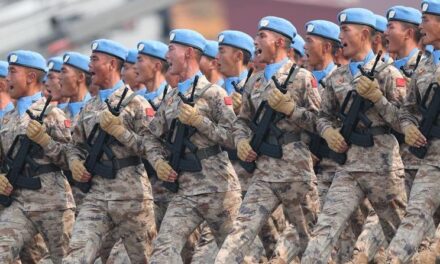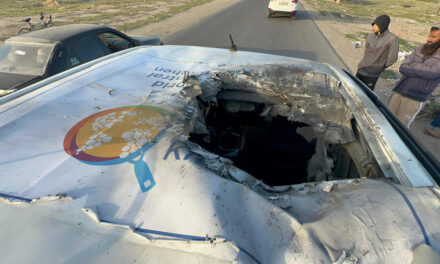.
Israels major assets are a welcome export article of the “only democracy” in the Middle East sharing our moral values, according the US Presidents. Beyond intelligency sharing, espionage, riot control, airport security; Israeli tech companies can guarantee your democracy and election poll results. Using the Florida USA app in your Secretary of State election policy. The fingerprints of Israeli and ex-intellugence official Ari Ben Menashe seems to be all over these events.
Israeli riot-gear sale to Mugabe fuels concern
This article has been removed from CSM archives and was located in the Wayback Machine cache.
Israelis debate the pending sale of water cannons, armored vehicles to Zimbabwe regime.
By Ben Lynfield | Special to The Christian Science MonitorJERUSALEM – A kibbutz that markets low-grade chemical weapons is poised to sell millions of dollars worth of “riot-control equipment” to Zimbabwe in a move its critics warn will translate into heightened repression by President Robert Mugabe’s regime (see story). But the firm, the Beit Alfa Trailer Company (BAT), insists its intention to sell equipment to Zimbabwe is actually humane: Demonstrators would be faced with water cannons, not live ammunition.
This is far from the first time Israel has supplied weaponry to a state increasingly considered an international pariah. Analysts say Israel’s defense industrial complex – which is US-subsidized, and is massive for a country its size – is becoming one of the world’s most competitive arms exporters. China, India, Burma, and Zambia are Israeli customers, despite the fact that the US either embargoes or severely restricts its own arms sales to those countries, says a Tel Aviv University study.
The UN reportedly had asked Israel to stop supplying both sides of the Ethiopian-Eritrean war, including an air-surveillance system to Ethiopia and two navy boats to Eritrea, according to Ha’aretz, an Israeli daily.
Israel and South Africa’s apartheid regime had a close defense-production relationship across a broad range of armaments, including nuclear weapons, according to Africa Business magazine.
The issue of BAT sales to Zimbabwe emerged in public discussion last week when Alon Liel, a former director-general of the foreign ministry and a former ambassador to Harare, wrote an opinion piece in Ha’aretz expressing revulsion that equipment produced on a kibbutz, Beit Alfa, would be used “to pursue the courageous proponents of democracy or the farmers trying to continue working their land, or against the thousand frightened Jewish citizens.”
According to the website, www.bat.co.il, BAT builds riot-control vehicles and specializes in water-cannon technology. The chemical additives – to be used in restraining “dangerous inmate situations” in correctional facilities – “can be injected in the water stream, under further officer control, to further restrain and demobilize the inmate.” Reuven Canfi, BAT general manager, says the chemical is a “food color” that aims at having “a psychological effect.” But the website suggests other chemicals, such as pepper spray, can be injected into the cannon’s water stream.
The company prides itself on producing nonlethal products that provide alternatives to opening fire. But its equipment has other uses. BAT sells an armored vehicle that comes with gun ports – which is basically an armored personnel carrier. Mr. Canfi says the latter type of vehicle would not be sold to Zimbabwe and that the planned transaction would concern only riot control vehicles that use water cannons.
The Zimbabwean newspaper, Financial Gazette, reported recently that Zimbabwe was seeking at least 30 riot control vehicles as part of a $10 million deal with BAT. Canfi says BAT plans to sell a much smaller number of vehicles in a deal amounting to far less than $10 million, but he would not specify.
“As long as they are using water with food color, instead of live ammunition, I’m happy,” Canfi says. “It does not matter if it is Zimbabwe, Chile, or Angola, we help the government to save lives.”
In 30 years of business, BAT counts among its customers the Israeli security forces.
The company started negotiating sales in Africa about a year ago, he says, with South Africa as one of its customers. During the 1980s, Israel maintained a close security alliance with South Africa while Pretoria was supplying Iran and Iraq, according to Africa Business. But even South Africa, which sells arms to Zimbabwe, is debating suspending those sales.
Yuval Steinitz, a legislator from Prime Minister Ariel Sharon’s Likud party, says he supports supplying Zimbabwe. “Beit Alfa cars usually end up saving lives of demonstrators. We would be happy if Saddam Hussein and the Syrians used them. I would be happy if the Chinese in Tiananmen Square had used only water cannons.”
An Israeli official says the government “has a mechanism, including many checks and balances, that take into consideration all the sensitivities. When there is a fear that a sale would affect civilians in an internal conflict, we simply stop it.”
“I think this is outrageous, and I don’t think it helps Israel-Zimbabwe relations,” said Nomi Chazan, a member of the Knesset from the liberal Meretz party. Israel, she say, should be forging ties with the people of Zimbabwe.
Western Made Weapons Used in Brutal Police Crackdowns >>
Continued below the fold …
Robert Mugabe’s Israeli Connection
(The Forward) July 23, 2013 – Zimbabwe’s strongman Robert Mugabe has succeeded in staying in office for 33 years with a potent mix of populism and violence — and he may have an Israeli company to thank if he extends his rule one more time.
The 89-year-old leader faces his sternest test yet next week when he squares off in a presidential election rematch against longtime rival Morgan Tsvangirai.
Few doubt that Mugabe, a former liberation war hero, would be trounced in anything close to a free or fair election — he has presided over the collapse of a once promising economy and engineered the billion-percent bout of hyperinflation that killed the Zimbabwe dollar.
That’s where a company called Nikuv International Projects Ltd. comes in. It is working with the Zimbabwe government’s Registrar General, which among other things maintains the country’s famously corrupt electoral roll.
Investigative journalists and opposition leaders believe Nikuv’s real role is to help Mugabe’s loyalists rig the July 31 poll.
The opposition Movement for Democratic Change party said it was “concerned about electoral fraud [by Nikuv] through manipulation of the voters’ roll, and the issuing of multiple national identity cards to individuals that would then allow them to vote twice.”
In past elections, turnout was suspiciously high in ZANU-PF’s rural strongholds. Widespread problems with the roll led to lower turnout in cities and towns, where the ruling party is wildly unpopular.
The Zimbabwe Independent reported that Tsvangirai questioned Nikuv’s role during a meeting he held with Zimbabwe Electoral Commission chairperson Rita Makarau last month.
Nikuv, which is based in Hertzliya, Israel, has been operating in Zimbabwe since 1994, and has presided over the increasing corruption of the electoral roll.
Zimbabwe Independent – Israeli elections rigging machine exposed
Western Made Weapons Used in Brutal Police Crackdowns In Azerbaijan
BAKU (RFE/RL) March 13, 2013 — Hours before Azerbaijani activists gathered in Baku last weekend for an unsanctioned protest against military violence, blogger Habib Muntezir sent out a word of warning: “Sonic weapons with a horrible acoustic effect may be used to disperse the protests. Use cotton or earplugs to protect your ears.”
In the end, riot police did not resort to using the LRAD, or Long-Range Acoustic Device, which can blast a pain-inducing 150-decibel beam of sound to deter unruly crowds.
But the presence of the LRAD, a U.S.-manufactured device that is gaining international popularity as a crowd-control tool, still provoked a wave of outrage among the March 10 protesters, who say the West should not be helping to stock the Baku regime’s arsenal.
Much of the concern centers on the supply of arms to Azerbaijan. The country has used its energy revenues to fuel a massive military buildup amid a bellicose standoff with neighboring Armenia over the disputed territory of Nagorno-Karabakh.
At the same time, it has steadily built up an arsenal of crowd-control devices that it is using regularly against demonstrators engaging in antigovernment protests, including truncheons, rubber bullets, tear gas, and water cannons.
« courtesy ISPRA manufacturing
Much of the equipment appears to have been purchased from Israel and the United States. Photographs of tear-gas canisters used to disperse crowds during January’s Ismayili protests bear code numbers linking them to ISPRA, a defense manufacturing firm based in the Israeli city of Herzelya
Likewise, weapons experts contacted by RFE/RL said the Mercedes-mounted water cannon used in the March 10 protests matches the shape and design of cannons produced by the Beit Alfa Trailer Company, a known supplier to Azerbaijan.
LRAD Corporation Announces Asian Public Safety and International Oil Industry Security Orders
ISDEF 2013 – Tactical Combat Vehicles – Unmanned Systems – C4ISR
The ISDEF 2013 exhibition opened yesterday in Tel Aviv is the largest, most impressive defense expo taking place in Israel in recent years. Over 100 exhibitors gathered here, with thousands of visitors attracted by many professional seminars and demonstrations of assault means, weapon systems and CBRNE protective measures. In this brief coverage we highlight Tactical vehicles. Two additional reports cover other themes including: Unmanned Systems & Robotics and C4ISR and small arms.
Another vehicle dealing with riots and public disturbance comes from Beit Alfa Trailers (B.A.T.). Fitted with B.A.T unique Jet Pulse Water Cannon the vehicle can effectively close-in and disperse riots by `firing’ short pulses, long pulses and continuous, powerful streams of water, injected with tear gas (CS) or pepper spray (OC) agents, with or without dye coloring, marking rioters during the dispersal actions. This behemoth is also protected against `soft’ or `hard’ attack, using all-round cameras for situational awareness, ballistic armor, runflat tyres and foam protect against firebombs thrown under chassis or on the upper deck. It also has tear gas nozzles dispersed around the vehicle, deterring rioters attempts to assault the vehicle. The vehicle is equipped with a front dozer blade for obstacle removal.






